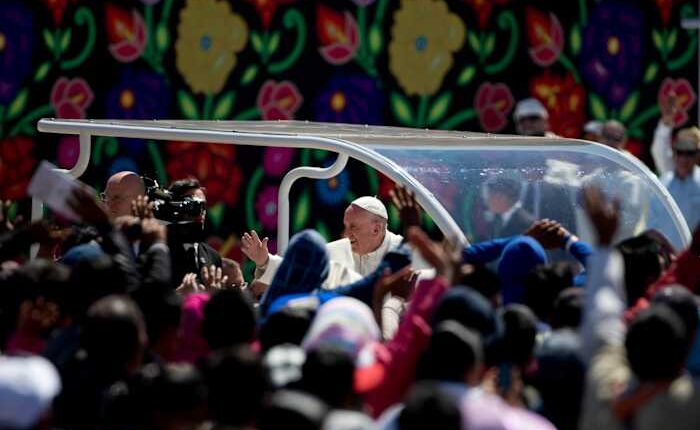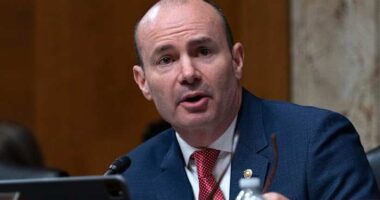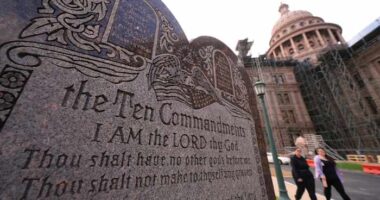
Here are five pivotal moments in Pope Francis’ relations with Native communities.
Santa Cruz, Bolivia, July 9, 2015
During a world summit focused on fighting social inequality, Pope Francis sought forgiveness for the wrongdoings of the church as well as the crimes committed against Native peoples during the colonization of America.
Steering away from his prepared speech, the Pope mentioned that many priests had vehemently opposed the violent methods used during the conquest and instead advocated for peace through Christian teachings. However, he humbly admitted that there had never been a formal apology, and thus, he now requested forgiveness for these past transgressions.
Washington, Sept. 23, 2015
Amidst a gathering of individuals outside the Basilica of the National Shrine of the Immaculate Conception during his sole visit to the United States, Pope Francis canonized Junipero Serra, an 18th-century missionary priest, recognizing him as a saint.
Serra “was the embodiment of a church which goes forth, a church which sets out to bring everywhere the reconciling tenderness of God,” Francis said.
But some Native activists denounced the decision. They said Serra was a prime culprit in church complicity with destructive colonization and that California’s Native people suffered mistreatment and devastating disease outbreaks in the series of missions he founded.
San Cristobal de las Casas, Mexico, Feb. 15, 2016
Francis celebrated a Mass for Mexican Indians that featured readings in the Native languages of Chiapas, a traditional dance of prayer and other blending of Catholicism and Indigenous culture.
“Long live the pope of the poor!” the crowd chanted. Francis presented an official Vatican decree approving another Native language to be used at Mass.
Maskwacis, Alberta, July 25, 2022
Francis traveled to a Cree community in the Canadian province of Alberta to deliver a long-sought apology for Catholic complicity in the 19th- and 20th-century residential school system for Canada’s Indigenous population of First Nations, Metis and Inuit people.
“Although Christian charity was not absent,” he said, the overall effect was “catastrophic.”
Vatican City, March 30, 2023
Building on years of appeals from Native people to Francis, the Vatican formally repudiated the “Doctrine of Discovery,” the legal theories backed by 15th-century papal bulls decrees that legitimized colonial-era seizure of Native lands by Spain and Portugal and that form the basis of some property laws today in the United States.
The Vatican said the decrees, or papal bulls, “did not adequately reflect the equal dignity and rights of Indigenous peoples” and have never been considered expressions of the Catholic faith.
Critics said the pope failed to take a needed step — to rescind the papal bulls.
___
Associated Press religion coverage receives support through the AP’s collaboration with The Conversation US, with funding from Lilly Endowment Inc. The AP is solely responsible for this content.
Copyright 2025 The Associated Press. All rights reserved. This material may not be published, broadcast, rewritten or redistributed without permission.

















